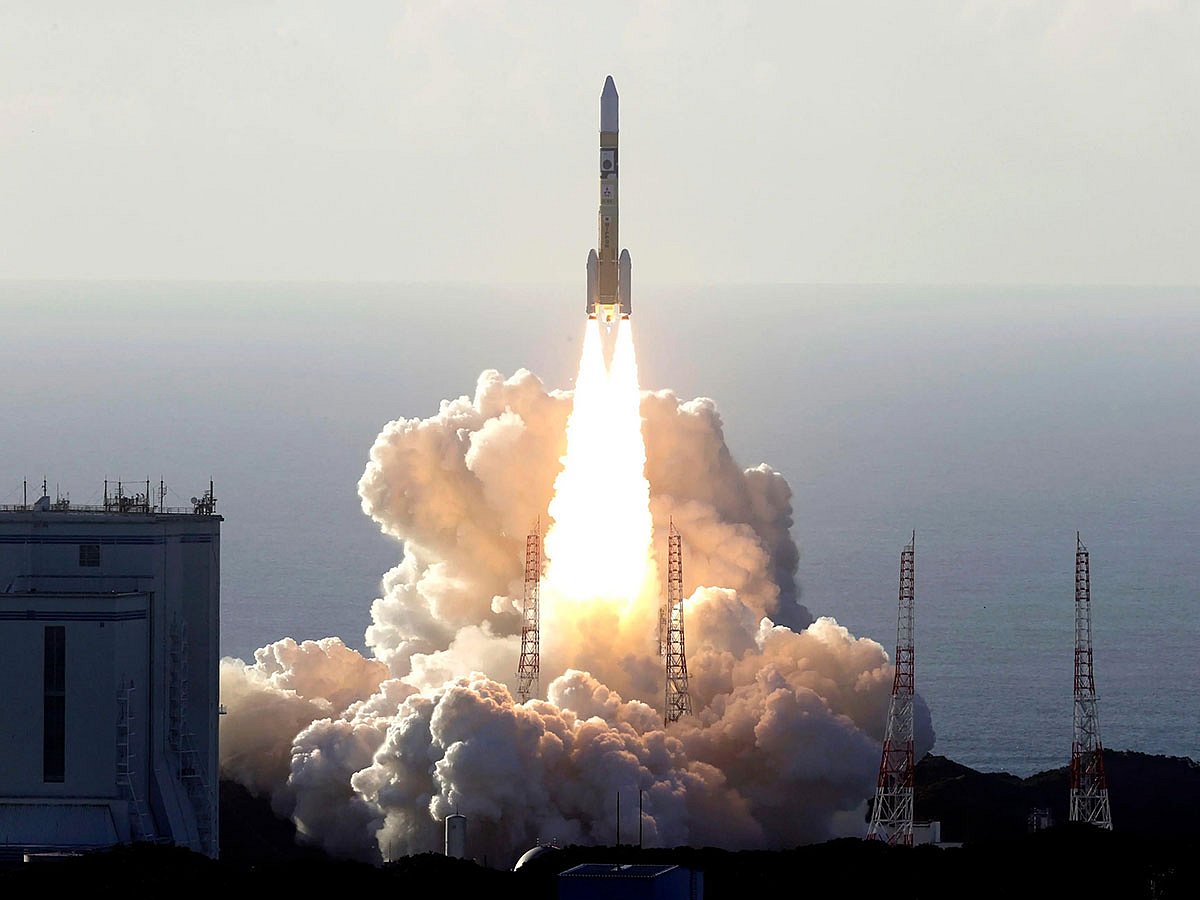Why the UAE must build its own orbital access capability
Data-driven economy and rise of AI make domestic launch capacity national imperative

It is only natural and fair for any nation to aspire and build its own orbital access capability and infrastructure. While the pursuit of outer space is a sovereign right, only a handful of countries have successfully achieved it. Regardless of the economic and/or technological reasons that may be used to explain this fact, the strategic value of independent access to outer space has grown immensely. Indeed, outer space will continue to grow in strategic and economic importance over the next many decades.
This is so because of geopolitical considerations, but also due to far-reaching implications for a growing data-driven global economy that is increasingly reliant on outer space systems.
The worldwide growth and adoption of Artificial Intelligence (AI) and the expanding demand for data centres, and the energy that is needed to power them, are reinforcing an already high demand for outer space infrastructure. There is now ample evidence that in the very near future we will have AIs in orbit, serving us on the surface of Earth.
I argue that the UAE must begin building its own domestic orbital launch capability without delay. This must become a national priority, and it must be pursued in parallel to all the already established and /or achieved strategic goals.
Orbital launches
Between Q1/2023 and Q2/2025, humanity achieved a total of 625 orbital launches. Around 58.24% were achieved by providers based in the United States, 27.36% by providers based in China, and 6.88% in Russia. The remaining 7.52% were achieved by providers in India, Japan, Europe/France/Germany, Iran, South Korea, North Korea, and Israel.
From the 195 countries on Earth, only a dozen or so have direct access to outer space. The above list reveals a simple, and yet fundamental, fact. The relative size of the economy is not as relevant as one may assume. In fact, there are countries under sanctions on the list that have managed to build their own access capabilities. In other words, building a country’s strategic advantage in outer space is about bold investment and policy prioritisation, and not economic size. Comparing the 2024 GDP (rounded figures from the IMF in billions) of the above listed countries explains this further. For example, the United Kingdom ($3,645) and the United Arab Emirates ($552) have no orbital launch capability, while Iran ($417), Israel ($542), Russia ($2,173), and South Korea ($1,875) do.
Individual launch providers
Looking at the individual launch providers over the same period, we find that there are 36 of them in total, and they represent a mix of private and public entities, with civil and military agendas. The 625 orbital launches between Q1/2023 and Q2/2025 have sent a total of 7,894 spacecraft to orbit, with a total upmass of 4,931,140 kg. The leading providers are Space Exploration Technologies (SpaceX), China Aerospace Science & Technology Corporation (CASC), Roscosmos, Rocket Lab, and United Launch Alliance (ULA). They have sent to orbit 6742, 427, 132, 79, and 73 spacecrafts respectively, the vast majority of them satellites.
The UAE has been one of the most active countries in space, in the region. The National Space Strategy, released in 2019, made space an integral part of the UAE’s strategic, economic, and investment landscape. Soon after, the National Space Fund was launched in 2022, making it very clear that the UAE meant business and intended to invest and pursue the delivery of its goals.
The UAE Space Agency and the Mohammed bin Rashid Space Centre have been at the forefront of this high priority strategic agenda. Most recently, on October 7, 2024, the Supreme Space Council of the UAE was established, entrusted with the leadership of the space sector.
Key milestones
Without a doubt, in the last decade, the UAE has achieved many firsts and key milestones in outer space. From satellites and astronauts to Martian probes and lunar rovers, the UAE has been making its mark in space.
However, the objective to build the UAE’s direct domestic orbital access capability is not expressed in the National Space Strategy. While this is understandable given the relatively recent focus on the space sector, it is time to update the vision and begin the process of building UAE’s direct access to outer space.
Whether this is achieved through rockets and/or space elevators, the short-term and long-term impact and benefits are immense, positive, and many. In truth, they are the surest way to secure the future reach, relevance, and resilience of the UAE’s data driven economy.
Dr Armen V. Papazian is Visiting Associate Professor of Space Economics, American University in Dubai
Network Links
GN StoreDownload our app
© Al Nisr Publishing LLC 2026. All rights reserved.